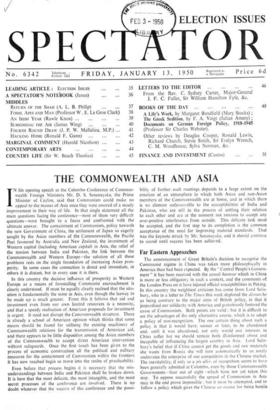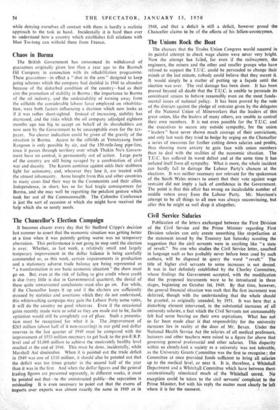Far Eastern Approaches
The announcement of Great Britain's decision to recognise the Communist regime in China was taken more philosophically in America than had been expected. By the "Central People's Govern- ment" it has been received with the casual hauteur which in China is more or less obligatory in such a context, and the comments of the London Press on it have injured official susceptibilities in Peking. In this country the weightiest criticism has come from Lord Salis- bury, who in a letter to The Times this week deplored the demarche as being contrary to the major aims of British policy, in that it jeopardised our solidarity with America and gratuitously fostered the cause of Communism. Both points are valid ; but it is difficult to see the advantages of the only alternative course, which is to adopt a policy of non-recognition. The one certain thing about such a policy is that it would have, sooner or later, to be abandoned and, until it was abandoned, not only would our interests in China suffer but we should remain both ill-informed about and incapable of influencing the largest country in Asia. Lord Salis- bury's belief that if China cannot get the goods and raw materials she wants from Russia she will turn automatically to us surely underrates the enterprise of our competitors in the Chinese market. The inevitability, if only as a pis aller, of recognition seems to have been generally admitted at Colombo, even by those Commonwealth Governments—four out of eight—which have not yet taken this step. To oppose successfully the spread of Communism in Asia may in the end prove impossible but it must be attempted, and to follow a policy which gives the Chinese an c.cuse for being hostile
while denying ourselves all contact with them is hardly a realistic approach to the task in hand. Incidentally it is hard than ever to understand how a country which establishes full relations with Mao Tse-tung can withold them from Franco.































 Previous page
Previous page